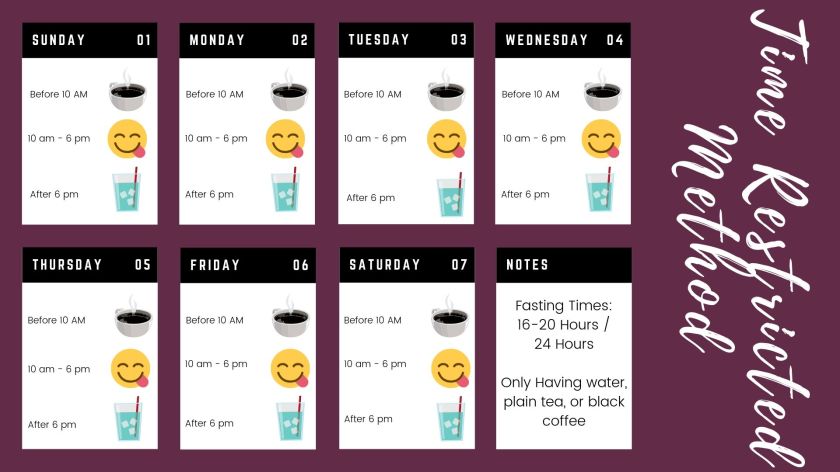Intermittent fasting has been talked about a lot recently, but is it right for you? Is it better than other weight loss methods? How can you practice it safely?
Intermittent Fasting
Intermittent fasting is a different weight loss strategy. It’s more when you eat, not necessarily what you eat. There are different ways to do it, but in one way or another, you are on a fasting schedule throughout the day, or week, having periods of fasting and non-fasting spurts.
Fasting is not the same as starvation. Extremely low calorie intake or going without eating for days is not safe and is damaging.

Is It a Better Method? Is It Safe?
Intermittent fasting can be effective for weight loss, but no necessarily “better” than other methods. It depends on what you might mean by better. There was a 2017 trial that found after 1 year of weight loss, intermittent fasting was comparable to calorie restriction in the amount of weight lost. Choosing which method comes down to preference and health factors.
For instance, if you are pregnant, diabetic, or healing from something like surgery, then intermittent fasting would not be a healthy weight loss strategy. Also, if you have an eating disorder, intermittent fasting would not be something to do since it can encourage binge eating or taking the fasting too far.
The other factor is to see how your body responds. For example, if you realize your blood pressure drops to quickly, you get headaches, or hangry when trying intermittent fasting, then find another method.
With all of that being said, for an average healthy adult who has some weight to lose, there should not be a problem with fasting unless you find it’s not a reasonable option for you.

Methods
There are 3 main types of intermittent fasting. Depending on how your body handles, there might be one that’s better than others. Before I get into the 3 types I wanted to say this: during your eating or “non-fasting” stage, you would eat normal size meals. This is not an excuse to binge and keep in mind nutrition. Just because this might help you not have to count everything that goes into your body, doesn’t mean that all you can feed it is junk food. Nutrition is always important in general, but especially when losing weight.
5:2 Method
The 5:2 method is when you choose 1-2 non-consecutive days throughout the week that you eat only 500 calories (200 calories being protein) and drink water. It could be in one meal or spread out throughout the day. The reason for 200 calories being from protein is to limit the amount of muscle/protein loss when fasting.

Alternate Day Method
This is fasting for 3-4 non-consecutive days per the week. 24-hours of fasting (500 calories throughout the day, 200 being from protein), and the next 24-hours eating what you want, when you want.

Time-Restricted Method
This one is probably my favorite since it includes to time you sleep, which makes it easier and more doable for me. You fast anywhere from 16-20 hours per day, including the hours you sleep. You can eat freely during your non-fasting hours. During your fasting period you can have things like water, plain unsweetened tea or black coffee. Then within a 4-8 hour window within a 24 hour period you eat. Most people opt for 8 hours. For instance, only have water/tea/coffee until 10 am, then eat and stop eating by 6 pm.

Bottom Line
Choose what’s best for you and your health. The best and healthiest diet is one that your body responds to, that isn’t a burden on you and your life, and something that keeps you eating healthy foods. Not something that leaves you “hangy” and irritable. Not something that makes you worried if you entered in the correct about of food. Not something that makes your life harder to live, but something you can manage. Whether that’s intermittent fasting or not, find what works for you.

